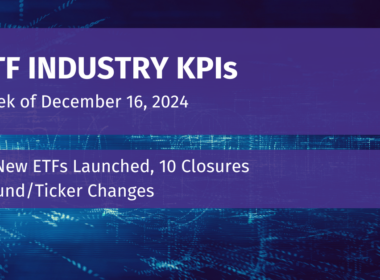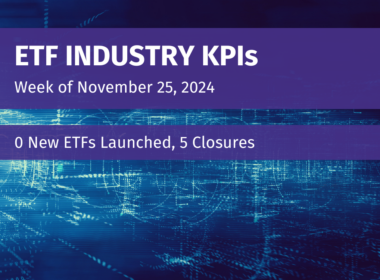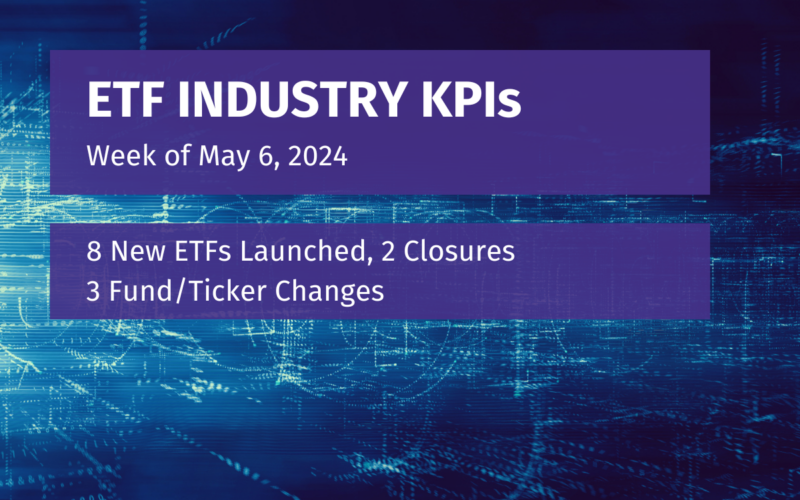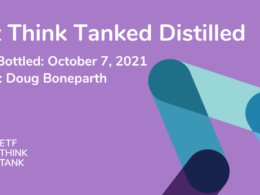Peter St. Onge is an economist, former professor, and currently produces a series of daily videos on social media talking about what’s happening in the global economy and financial markets. He joins the ETF Think Tank to talk about the Fed, the federal debt, bitcoin and more.
St. Onge starts by explaining that we’ve gotten some stagflationary numbers recently and he doesn’t trust the Fed to be able to manage the situation. There are signs that things are beginning to crack, if not break, such as last year’s regional bank failures and the collapse of the Japanese yen. The federal debt is completely out of control and the Fed tends to print money until something happens and they’re forced to hit the brakes. One of the big questions now is will the Fed end up trying to bail out the world.
St. Onge notes that inflation is definitely on the rise again and the Fed might be forced to rewrite their script. Powell is in a tight spot right now because he had his game plan laid out – declare victory over inflation and then pivot to rate cuts. Supply chains clearing up helped to solve the inflation problem last time, but what’s happening now is a function of having too much liquidity in the system. St. Onge doesn’t believe that we’re going to see any rate cuts from the Fed this year and the next move could still be a hike.
Where is the current inflation coming from? St. Onge says that cost push inflation could be a small part of it and there’s always the chance of geopolitical risk, but the increased money supply is the likely culprit. There’s usually a lag effect following all of that money being pumped into the system and that could be what we’re seeing now. The buildup of savings post-COVID is draining out. The Fed is slowing down the taper. These are the kinds of things that will keep driving inflation.
In the end, St. Onge says that hard money solves a lot of problems with gold & bitcoin being the obvious candidates. In particular, he’s fascinated with cryptocurrency, but it just doesn’t have the history yet to make a lot of people get more comfortable with it. If the paper money market collapses in the next 10 years, gold is probably what people will turn to. Beyond that, however, it could be bitcoin. There’s always the risk that it could have a technical flaw or the government will try to ban or regulate it, but the big benefit is that it can’t be seized. The fatal flaw with gold is that you have to tell people where it’s sitting. Bitcoin has the potential of breaking this cycle.
How does the stagflation argument work within real estate? St. Onge says that two things are happening – inflation just keeps going up and incomes keep coming down because, in general, there’s a weak relationship between home prices and incomes. You really have an astounding range of home price/income ratios globally. Most people can’t afford to buy a house, so the rich people come in to buy and enjoy the appreciation, while poorer people are stuck renting. In reality, there’s no reason why asset values and incomes have to line up. The U.S. real estate market is surprisingly cheap when compared to other global markets by this measure.
Other key takeaways:
- One of the under-the-radar market risks right now is the growing use of “buy now, pay later” schemes. There’s roughly $700 billion of this debt and that doesn’t necessarily show up on the balance sheets.
- The next thing to break the system won’t be a major market event. It’ll be the thing that nobody’s ever heard of or knows what it is. Think CDOs during the financial crisis.
- How can the central banks coordinate to address inflation? St. Onge says they just need to hike interest rates. It’s not rocket science. Everybody is addicted to easy money and that’s the problem.
- The impact of AI on jobs is mostly overhyped. In farming, manual labor was replaced by machines and there was hysteria, but the automation eventually makes us all richer. Japan has high automation and there’s a labor shortage issue. Less developed countries have no automation and no jobs. The more human skills you have, the more valuable you’ll be.
- At the moment, real estate is a good investment and it still looks like a good inflation hedge.
- St. Onge thinks that published inflation rates might be understated. He notes that fast food menu prices are up 55%, which could be a better indicator of how regular people are being impacted. House and other asset prices could be down 20% in real terms based on Big Mac inflation.
Disclosure
All investments involve risk, including possible loss of principal.
The material provided here is for informational purposes only and should not be considered an individualized recommendation or personalized investment advice. The investment strategies mentioned here may not be suitable for everyone. Each investor needs to review an investment strategy for his or her own particular situation before making any investment decision.
All expressions of opinion are subject to change without notice in reaction to shifting market conditions. Data contained herein from third-party providers is obtained from what are considered reliable sources. However, its accuracy, completeness, or reliability cannot be guaranteed.
Examples provided are for illustrative purposes only and not intended to be reflective of results you can expect to achieve.
The value of investments and the income from them can go down as well as up and investors may not get back the amounts originally invested, and can be affected by changes in interest rates, exchange rates, general market conditions, political, social, and economic developments, and other variable factors. Investment involves risks including but not limited to, possible delays in payments and loss of income or capital. Neither Tidal nor any of its affiliates guarantees any rate of return or the return of capital invested. This commentary material is available for informational purposes only and nothing herein constitutes an offer to sell or a solicitation of an offer to buy any security and nothing herein should be construed as such. All investment strategies and investments involve risk of loss, including the possible loss of all amounts invested, and nothing herein should be construed as a guarantee of any specific outcome or profit. While we have gathered the information presented herein from sources that we believe to be reliable, we cannot guarantee the accuracy or completeness of the information presented and the information presented should not be relied upon as such. Any opinions expressed herein are our opinions and are current only as of the date of distribution, and are subject to change without notice. We disclaim any obligation to provide revised opinions in the event of changed circumstances.
The information in this material is confidential and proprietary and may not be used other than by the intended user. Neither Tidal nor its affiliates or any of their officers or employees of Tidal accepts any liability whatsoever for any loss arising from any use of this material or its contents. This material may not be reproduced, distributed, or published without prior written permission from Tidal. Distribution of this material may be restricted in certain jurisdictions. Any persons coming into possession of this material should seek advice for details of and observe such restrictions (if any).












